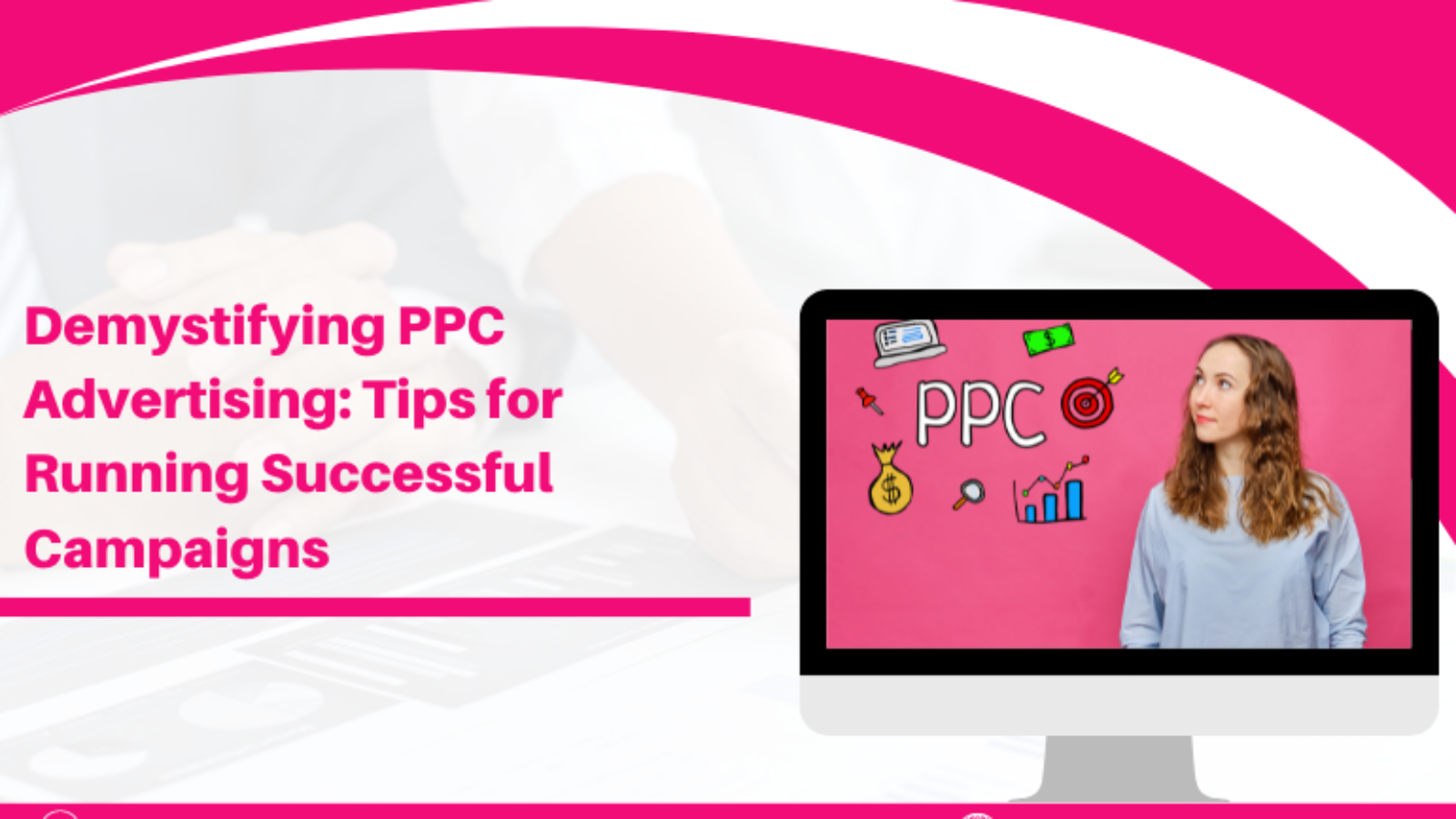Introduction
In the digital age, Pay-Per-Click (PPC) advertising has become a vital component of online marketing strategies. PPC campaigns offer businesses an opportunity to drive targeted traffic to their websites and increase conversions. However, running successful PPC campaigns can be challenging, especially for those new to the realm of digital advertising. In this blog, we will demystify PPC advertising and provide you with essential tips to ensure the success of your campaigns.
Set Clear Goals and Objectives
Before diving into any PPC campaign, it is crucial to define your goals and objectives. What do you aim to achieve through your campaign? Is it brand awareness, lead generation, or product sales? Defining clear goals will help you develop an effective strategy and measure your campaign’s success accurately.
Thoroughly Research Keywords
Keywords are the backbone of PPC campaigns. Conducting thorough keyword research is essential to identify the terms and phrases potential customers are searching for. Use keyword research tools to identify high-volume, relevant keywords with reasonable competition. Incorporate a mix of long-tail and broad keywords to optimize your campaign’s performance.
Craft Compelling Ad Copy
Creating compelling ad copy is essential to capture users’ attention and entice them to click on your ads. Make sure your copy is concise, engaging, and tailored to your target audience. Highlight unique selling points, include a clear call-to-action, and use relevant keywords in your ad copy to improve its relevance and quality score.
Optimize Landing Pages
Your PPC ads may generate high click-through rates, but if your landing pages are not optimized, you risk losing potential customers. Ensure that your landing pages are relevant, user-friendly, and aligned with the ad copy. Focus on delivering a seamless user experience, use persuasive elements such as testimonials or trust signals, and make your call-to-action prominent and compelling.
Implement A/B Testing
A/B testing is a valuable technique for optimizing your PPC campaigns. Create multiple variations of your ad copy, landing pages, and call-to-action buttons, and test them against each other to identify the best-performing elements. Continuously analyze the results and make data-driven decisions to refine your campaign and maximize its effectiveness.
Monitor and Analyze Performance
Regularly monitoring and analyzing your campaign’s performance is crucial for ongoing success. Utilize PPC analytics tools to track key metrics such as click-through rates, conversion rates, cost per click, and return on investment. Identify trends, identify areas for improvement, and make adjustments accordingly to optimize your campaign’s performance.
Budget and Bid Strategically
Managing your PPC budget and bids effectively is vital for campaign success. Set a realistic budget that aligns with your goals, and regularly monitor your spending to ensure you stay within your allocated limits. Strategically adjust your bids based on keyword performance and competition to maximize your ad’s visibility and maintain a strong position in search results.
Leverage Ad Extensions
Ad extensions are additional pieces of information that can be added to your PPC ads, enhancing their visibility and relevance. Utilize ad extensions such as sitelinks, call extensions, location extensions, or structured snippets to provide users with more relevant information and increase the chances of attracting clicks and conversions.
Stay Updated with Industry Trends
The digital advertising landscape is constantly evolving. Stay updated with the latest industry trends, new advertising features, and best practices to ensure your campaigns remain competitive. Attend industry conferences, follow authoritative blogs, and engage with the digital marketing community to stay ahead of the curve.
Conclusion
PPC advertising can be a powerful tool to drive targeted traffic, generate leads, and boost conversions for your business. By setting clear goals, conducting thorough research, crafting compelling ad copy, optimizing landing pages, implementing A/B testing, monitoring performance, budgeting strategically, leveraging ad extensions, and staying updated with industry trends, you can demystify PPC advertising and run successful campaigns. Remember, PPC is an ongoing process that requires constant monitoring, refinement, and adaptation to achieve optimal results.


Add a Comment